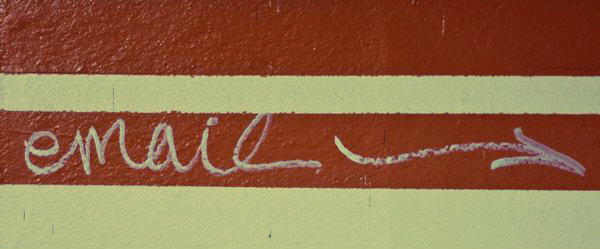Hernandez v. Path, Inc., 2012 WL 5194120 (N.D.Cal. October 19, 2012)

Earlier this year plaintiff filed a class action lawsuit against photo app provider Path, alleging ten claims relating to Path’s alleged surreptitious collecting of mobile device address books and installation of tracking software. Path moved to dismiss the lawsuit for lack of standing and for failure to state a claim. The court held that plaintiff had standing to pursue the case, but dismissed some of the claims.
Standing
The court found that alleged depletion of “two to three seconds of battery capacity” was de minimus and thus not sufficient to support the injury-in-fact plaintiff was required to show. Citing to the fairly recent case of Krottner v. Starbucks, the court found that the hypothetical threat of future harm due to a security risk to plaintiff’s personal information was insufficient to confer standing. The only basis on which the court found there to be a sufficient claim of injury to support standing was the (hard to believe) claim by plaintiff that he would have to spend $12,500 to pay a professional to remove the Path app and related data from his phone.
The Dismissed Claims
The court dismissed for failure to state a claim (with leave to amend) plaintiff’s claims under the Electronic Communications Privacy Act (ECPA), Stored Communications Act (SCA), California wiretapping statute, state common law privacy, conversion and trespass.
ECPA and California Wiretapping Statute Claim. The court dismissed the ECPA and California Wiretapping Statute claims, finding that the complaint did not allege that Path intercepted any communication contemporaneous with its transmission. At best (from plaintiff’s perspective), it appears that Path gathered information on social networking sites after it was transmitted. And the uploading of the address books does not appear to have qualified as a communication under these statutes.
SCA Claim. The SCA claim failed “on multiple fronts.” Plaintiff was not a provider of electronic communication services and his iPhone was not a facility through which such service was provided. So Path’s alleged access did not come within the prohibition of the SCA. Moreover, the address books were not communications to which the SCA applied, because they were not in “electronic storage” as defined by the SCA, namely, being in temporary, intermediate storage incidental to their electronic transmission. (We see a similar issue in the recent Jennings case from South Carolina.)
State Common Law Privacy. This claim would have required plaintiff to show (1) public disclosure (2) of private facts (3) which would be offensive and objectionable to the reasonable person and (4) which is not of legitimate public concern. The court found there was no public disclosure, only Path’s storage of data on its servers.
Conversion. Under California law, to be successful on a claim of conversion, plaintiff would have had to plead and prove “ownership or right to possession of property, wrongful disposition of the property right and damages.” The court dismissed this claim because plaintiff pled only that Path copied the data, not dispossessing him of it. (As an aside, it’s this very point that underscores my common admonition to copyright maximalists that infringement is not “theft,” because theft involves dispossession. End of digression.)
Trespass. The California common law action of trespass in the computer context requires a plaintiff to show that (1) defendant intentionally and without authorization interfered with plaintiff’s possessory interest in a computer system; and (2) defendant’s unauthorized use proximately resulted in damage to plaintiff. The tort “does not encompass … an electronic communication that neither damages the recipient computer system nor impairs its functioning.” Intel v. Hamidi, 30 Cal.4th 1342 (Cal. 2003). In this case, plaintiff did not allege that the functioning of his mobile device was significantly impaired to the degree that would enable him to plead the elements of a trespass. The court found that any depletion of his mobile device’s finite resources was a de minimis injury. (See the standing analysis above.)
The Remaining Claims
The claims for violations of the California Computer Crime Law, Californa’s Unfair Competition Law (Section 17200), negligence and unjust enrichment remain in the case.
California Computer Crime Law. Based on the limited briefing, the court could not conclude as a matter of law whether Path’s alleged conduct fell outside this statute. The question remains whether providing the app which plaintiff voluntarily downloaded and installed on his iPhone provided undisclosed software code that surreptitiously transferred plaintiff’s data.
Californa’s Unfair Competition Law. This statute prohibits “any unlawful, unfair or fraudulent business act or practice.” The court found that the conduct alleged in the complaint, if true, constituted an unlawful or unfair act or practice within the meaning of the statute. It found that plaintiff had failed to allege any fraudulent practice, but since plaintiff met the first two prongs (unlawfulness and unfairness), the claim survived.
Negligence. Plaintiff alleged that Path owed a duty to plaintiff to protect his personal information and data property and take reasonable steps to protect him from the wrongful taking of such information and the wrongful invasion of privacy. Path allegedly breached this duty by, among other things, accessing and uploading data from plaintiff’s phone, storing that data in an unsecure manner, and transmitting the data to third parties. Path relied on In re iPhone Application Litigation to argue it had no duty to plaintiff. In that decision, Judge Koh held that plaintiffs had not yet adequately pled or identified a legal duty on the part of Apple to protect users’ personal information from third-party app developers. This case was different because Path was a third party developer. Despite the existence of a duty, plaintiff’s claims of damages (here’s the $12,500 repair bill issue again) will likely face substantial challenges as the case progresses.
Unjust Enrichment. Path argued that unjust enrichment was not a cause of action under California law. The court cited to cases suggesting that California law does indeed recognize such a claim and kept in in this case.
Photo credit Flickr user stormwarning under this Creative Commons license.






